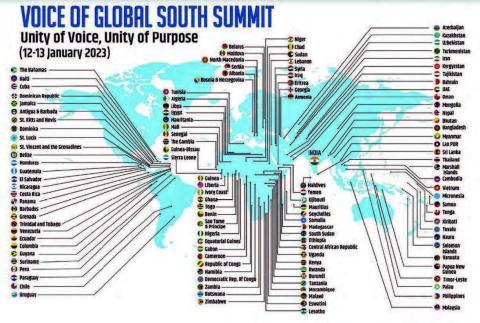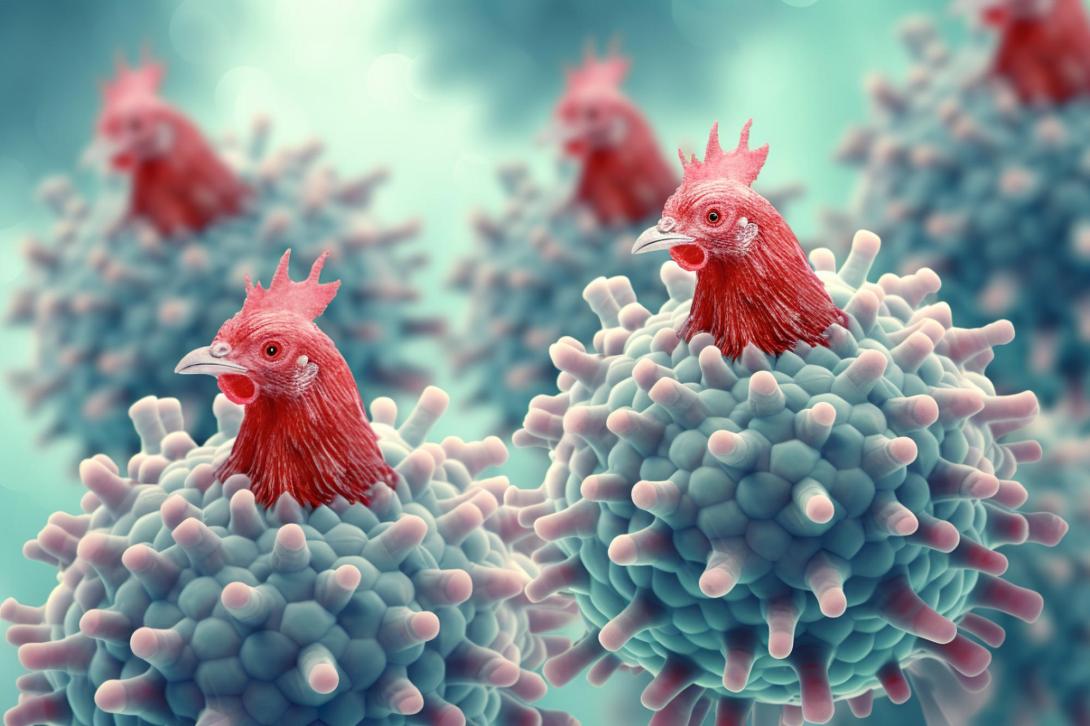The Global South and the Summit of the Future
Posted_Date
Image

Body
THE United Nations General Assembly (UNGA) is scheduled to convene for a “Summit of the Future” in New York on 22-23 September 2024. The outcome of this meeting of world leaders will be the adoption of a “Pact for the Future”. During the past year, the details of the Pact have been discussed among the 193 UN member-states under the co-facilitation of Germany (representing the developed countries of the North) and Namibia (representing the developing countries of the South). The objective of the Pact is “to safeguard the future for present and coming generations”.
India’s approach towards the UN’s Summit of the Future was articulated by Indian External Affairs Minister Dr S Jaishankar in 2023. He emphasized the need to demonstrate “genuine solidarity” to generate “real trust” and integrate the “sentiment of the Global South” in preparing for the Summit. During the discussions in the UNGA in May 2024, India cautioned that if these essential elements were missing from the process, the Summit of the Future would become a “Summit of the Past”, condemning the United Nations “to a perilous vicious cycle of fading into irrelevance”.
The Global South consists of developing country member-states of the UNGA, many of them former colonies of European powers in 1945 who did not negotiate the UN Charter. Their membership in the United Nations began with the historic process of decolonization that began after India’s independence from British colonial rule in August 1947.
The Global South became a majority in the UNGA, propelled by the Decolonization Resolution of December 1960. The first visible expression of solidarity of the Global South in multilateralism was the successful adoption by a two-thirds majority vote of UNGA resolutions in December 1963 to amend the UN Charter. These amendments resulted in expanding the representation of the Global South in the UN Security Council (UNSC), which controls decisions on peace and security, and the Economic and Social Council (ECOSOC), which controls UNGA decision-making on socioeconomic issues.
Since 1960, the process of consolidation and prioritization of Global South priorities has been marked by several negotiating landmarks in multilateral institutions. This was due to the solidarity and sentiment of the Global South, based on trust in the effective and equitable functioning of the interlinked post-war multilateral system.
Among the Global South’s achievements have been the creation of the non-aligned movement in September 1961 which today brings together 120 member-states in the UNGA; the establishment of the Group of 77 (or G-77) in 1964 which today represents 134 out of 193 member-states in the UNGA; the creation of the UN Development Programme (UNDP) by the UNGA in 1965; the adoption of the G-77 Charter of Algiers in 1967 calling for a New International Economic Order; the Decision on Differential and More Preferable Treatment (also known as the Enabling Clause) for developing countries in the GATT (precursor of the World Trade Organization) in 1979; the UNGA Declaration on the Right to Development (DRTD) as an inalienable human right in 1986; and the Common but Differentiated Responsibility (CBDR) provision of international law, codified by the UN Conference on Environment and Development in 1992.
Through patient and forward-looking negotiations in the UNGA between 1960-2015, the Global South/G-77 has succeeded in bringing “development” into the mainstream of multilateralism. The unanimous adoption of Agenda 2030 by the UNGA in September 2015, with its 17 Sustainable Developmental Goals (SDGs), is an acknowledgement of this fact. Agenda 2030 converges the common interests of the Global North and Global South into an integrated human-centric framework in which peace, security, and development are interlinked. This is the sentiment that the Global South seeks to integrate into the vision of the Summit of the Future.
The UN’s SDG Summit in 2023, held to assess the implementation of Agenda 2030, warned that numerous crises since 2015 have been derailing this vision. Unless checked, these can have a deleterious impact on the Global South, particularly on the application of new digital technologies in a human-centric manner to accelerate the implementation of Agenda 2030. The Summit of the Future’s consideration of a Global Digital Compact requires special attention to the sentiments of the Global South in order to bridge existing digital divides enumerated during the UNGA review of the UN’s Tunis Agenda on an Information Society in December 2015.
The Global South’s focus during the Summit of the Future must be to seek effective multilateralism on the ground. A decision to convene a UN General Conference, as provided for in Article 109 of the UN Charter, to review the UN Charter in September 2025 would be an appropriate way to mark the 80th anniversary of multilateralism by integrating the aspirations of the Global South.
Beware of infectious avian influenza in society
Posted_Date
Image

Body
AVIAN influenza, caused by the H5N1 virus, began spreading globally in 2008. The virus initially spread among animals and then to humans who came into contact with infected animals. Severe cases of avian influenza can be fatal.
In early October, Vietnamese state media reported that dozens of tigers died in southern Vietnam zoos following a bird flu outbreak. Since August, 47 tigers, three lions, and a panther have succumbed to the H5N1 virus at Vuon Xoai Zoo near Ho Chi Minh City and My Quynh Safari Park in Long An province. No human infections were reported.
In 1997, as bird flu claimed lives in Hong Kong, approximately 1.5 million chickens were culled to prevent an outbreak in the region. In early 2004, a significant bird flu outbreak occurred in Thailand, Vietnam, South Korea, and Japan, leading to the deaths of 21 people. According to surveys, between 2003 and 2024, a total of 889 people across 23 countries were infected by the H5N1 virus. Of these, 463 died, representing 52 per cent of those infected, as reported by the World Health Organization.
Currently, people worldwide are facing outbreaks of infectious diseases. Of these, 75 per cent of the diseases that have emerged globally in the past two decades were zoonotic, meaning they were transmitted from animals to humans. As a result, it has become increasingly difficult to separate animal health from human health due to the unexpected rise in infectious diseases.
Biosecurity is crucial in poultry farming. Farmers must follow animal health protocols from relevant authorities to protect both their animals and themselves from dangerous viruses. By prioritizing biosecurity for chickens, ducks, quails, and other livestock, farmers can safeguard their animals and their own health.
The Department of Livestock Breeding and Veterinary in Myanmar has issued guidelines for operating animal farms. Farmers and farm workers must wash their hands with soap after working with chickens, ducks, and quails. Additionally, people should thoroughly cook meat and eggs to ensure they are safe for consumption. Following these practices can help prevent bird flu infections in daily life.
Practising personal hygiene and keeping poultry farms neat and tidy are crucial to preventing bird flu and cutting the chain of infection in the community. Local authorities have to take preventive measures whenever they receive information about bird flu from all over the world and warn the breeders of bird flu infection in time.
